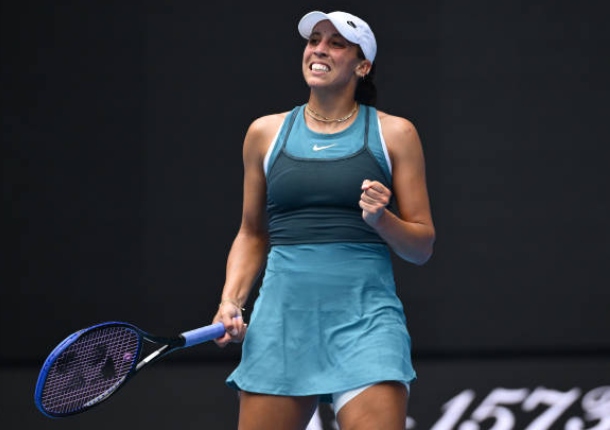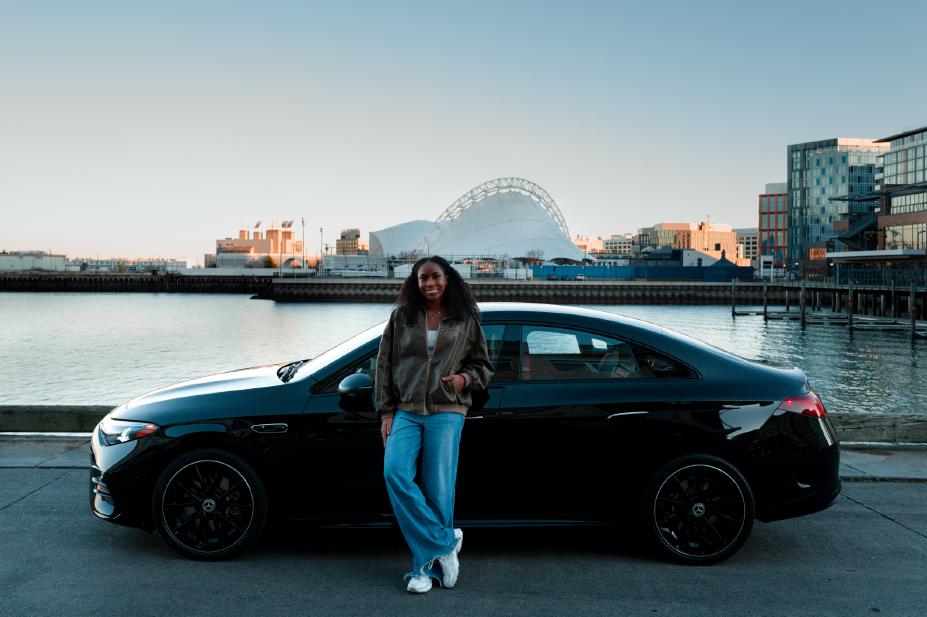[ad_1]
A Flag, But No Finish Line: The Story of Andrea Jaeger
A 1984 Olympian who helped pave the way for others nearly 40 years later.
The 1984 Los Angeles Olympics marked a seismic shift. For the first time, certain sports allowed professional athletes like Andrea Jaeger, then the world’s No. 3 tennis player, to grace the Olympic stage. A teenage prodigy who turned pro at just 14 years old, Jaeger represented the U.S. in Los Angeles five years later in this historic shift. Now, with Paris 2024 approaching, Jaeger reflects on her groundbreaking journey. She shares the triumphs and challenges of being a trailblazer, offering a raw recollection of her Olympic experiences nearly 40 years later.
*Interviews have been edited for conciseness, grammar, and clarity*
Discussion with Dylan Friedman:
Friedman:
What stands out when considering your time participating in the ’84 games? The good, bad, the ugly?
Jaeger:
The good, bad, the ugly is a good way to put it. It was an interesting time because I didn’t grow up wanting to be a professional tennis player. I grew up loving sports and thinking the Olympics was the end all of sports. If you made it in sports, you were an Olympian. That made sense to me. And so when I became a professional tennis player, which I did at 14 and was No. 2 in the world at age 16, Olympics wasn’t in my scope because we weren’t allowed to play as professionals. So I thought I didn’t make it in the highest view of sports because I wouldn’t be an Olympian. When it was decided that professional athletes could play, it was hard to say yes because I had grown up with the status of amateur athletes working so hard to get to the Olympics. And I, as a professional tennis player, had accumulated so much from professional tennis. We have grand slams four times a year. We had tournaments every week. We were making money. But the fact of the matter was I wanted to know who else was playing because I already was receiving so much from tennis and sport, and if someone was an amateur and their whole goal was to make the Olympics, I was taking their spot, I didn’t know if that was fair.
Friedman:
What do you remember most about your time on the court, competing during those games?
Jaeger:
I probably shouldn’t have played because my shoulder was still dislocated at the start of the Olympics, but I was determined to finish the tournament pain-wise. But the doctors pulled me from my second-round match. They saw me, and I was having a hard time getting my team uniform on. The Olympics test athletes on site (to confirm you are) male or female and for steroids. And I’m like super excited. Cause I was clean my whole life. But I failed the physical part for my shoulder. The doctor told me I’m pulling you if your shoulder’s bad because I’m here for the athlete; I’m here to protect the athlete. And I begged, you got to let me finish the tournament because I am here now. And he said I’m going to check on you every match and see. So, I won my first match with the dislocated shoulder. And the second before I played my second round, the doctor approached me and said, you’re pulled. I couldn’t even cry. I was so devastated. I couldn’t even cry. I just sat there numb, like totally numb, thinking, well, God never answered my prayer of do I give my spot to someone, now I took a spot, and I defaulted. I’m not even coming home with a medal for my country. And then and then the only, the other thing I remember about that is Arthur Ashe right after I did default, he interviewed me, and I didn’t grow up in, really in his era, he was before me, he was already into commentary, and he was such a humanitarian for tennis and everything. He looked at me and said you don’t look upset; you just had to default, and I said, we’re professional athletes; this is what we do. Nobody knows our pain, nobody knows our suffering, right? And this is possibly the worst day I’ve ever had in sport. And not just because I’m representing my country; that’s all I’ve ever wanted to do. I’ve played Fed Cup. I’ve played in the Wightman Cup. This is the Olympics. I will maybe never get a chance again at this. And, he said he goes, yeah, but you’re here, you are here. And I said, yeah, but I just wanted to represent my country in a way I could be proud of. And then my coach at the time was Gayle Godwin, who I think was the UCLA coach. She got one of the Olympic flags, and I don’t know how she pulled that off, but she got it and gave it to me. She said, you may not have gotten a medal, but you got the flag. And I didn’t stay because I felt like I didn’t earn it to stay and watch the other athletes compete because I couldn’t finish, and then it took me about two more summer Olympics even to watch it because I was just bummed out.
Friedman:
Despite the controversy surrounding professionalism in the ‘84 games (tennis as a demonstration sport, soccer if you did not have World Cup experience or sponsored track and field athletes blatantly receiving money under the table), Looking back, how do you feel about your role in paving the way for professional athletes in the Olympics?
Jaeger:
It’s always interesting to be first in something. You get both sides; you get the wow factor, and then you get the other factor of have people caught up with the concept yet. So, there will always be criticism if you’re first in something, and there will always be glory; how you deal with it depends on what kind of individual you are within. To me, the Olympics are about true humanness in sports. It’s the true heart of the world. And so it’s great to be part of something, as long as it benefits the athletes afterward.
Friedman:
Now, approaching the 40th anniversary of those Olympics in July and having the next Olympic cycle go back to L. A. four years from now, how do you view the Olympics currently?
Jaeger:
I look up to the Olympic spirit. I believe in the Olympic spirit. To me, the Olympic spirit exists. You competed, but you competed with heart, and you competed with goodwill. You competed with passion, but you competed with fairness. That exemplified the Olympics to me: you could achieve something stellar in a sport, but you could also be a good human being. And that meant something. I’ve always admired the athlete who puts in all that training. For that one moment, that’s what the Olympics are all about. When I walked in and got my badge, I put it around my neck, and you looked around because there’s the Olympic Village, and its spectators aren’t allowed where you’re at. And all you see is this huge group of people: everybody’s an Olympian, everyone like you, Carl Lewis is over there, or Flo-Jo or whoever’s there. You know that they are there to achieve.
[ad_2]


